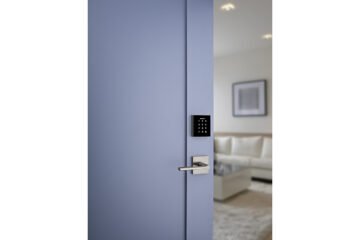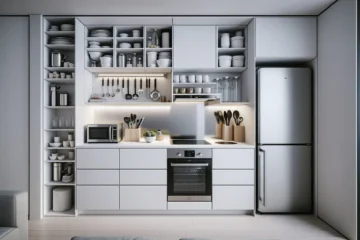In today’s world, where technology and sustainability go hand in hand, creating an energy-efficient kitchen is more crucial than ever. For singles living in apartments and having a keen interest in integrating technology into their lives, smart kitchen devices offer a perfect solution. Not only do these devices enhance convenience, but they also help reduce energy consumption, making your home eco-friendlier. In this blog, we will explore various sustainable smart home solutions and eco-friendly smart devices that can transform your kitchen into an energy-saving haven.
The Importance of Energy Efficiency in the Kitchen
The kitchen is often considered the heart of the home, but it can also be one of the biggest energy consumers. From cooking appliances to lighting, the energy used in the kitchen can significantly impact your utility bills and carbon footprint. By adopting smart kitchen devices, you can take control of your energy consumption while enjoying the benefits of modern technology.
#1 Smart Thermostats: Optimize Your Cooking Environment
One of the first steps to creating an energy-efficient kitchen is installing a smart thermostat. These devices not only control your home’s heating and cooling but can also help manage the temperature in your kitchen while cooking.
Benefits:
- Remote Control: Adjust settings from your smartphone, ensuring optimal temperatures while you cook.
- Learning Capabilities: Smart thermostats learn your habits and adjust temperatures accordingly, reducing energy waste.
Recommended Product: Google Nest Learning Thermostat
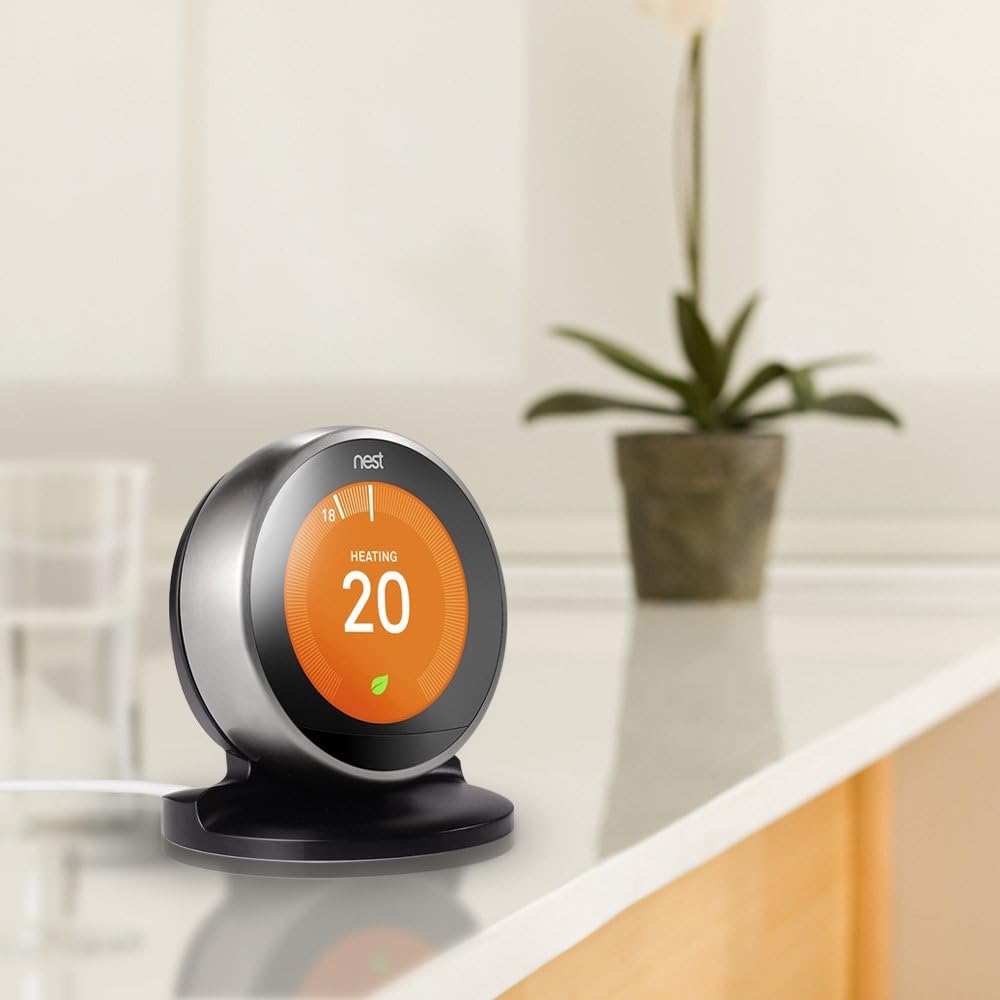
#2 Energy-Efficient Appliances: The Heart of a Smart Kitchen
Investing in energy-efficient appliances is crucial for reducing energy consumption in the UK. When selecting new appliances, look for those that carry the Energy Saving Trust recommended logo or the EU energy efficiency labels. These labels provide valuable information on energy consumption and efficiency, helping you make informed choices.
Key Appliances for an Energy-Efficient Kitchen
- Smart Refrigerators: Modern smart refrigerators can monitor food freshness and suggest recipes based on the ingredients you have on hand. Many models are equipped with features like door alarms and precise temperature controls to minimize energy use. Opt for an A+++ rated model to ensure maximum efficiency.
- Induction Cooktops: Induction cooking uses electromagnetic energy to heat pots directly, which results in faster cooking times and less wasted heat compared to traditional gas or electric stoves. This technology not only speeds up meal preparation but also helps keep your kitchen cooler.
- Smart Ovens: Smart ovens come with features such as preheating via smartphone apps and automatic shut-off capabilities, allowing you to save energy while ensuring perfectly cooked meals. Look for models with A ratings for optimal performance.
- Energy-Efficient Dishwashers: Upgrading to an A+++ rated dishwasher can significantly reduce your energy and water usage. These dishwashers adjust their wash cycles based on the load size, ensuring efficient cleaning without wasting resources.
- Microwaves: Microwaves are generally more energy-efficient than conventional ovens since they only heat the food rather than the surrounding air. Choose a model with an A rating for maximum efficiency.
- Kettles: Invest in a kettle that allows you to boil only the amount of water you need, saving around 20% more energy than traditional kettles.
Recommended Products
Smart Refrigerator: Hisense American Fridge
Smart Oven: Bosch Serie 4 Built-in Oven
Dishwasher: Bosch Serie 6 Dishwasher
#3 Smart Lighting Solutions: Illuminate Efficiently
Lighting plays a significant role in energy consumption in the kitchen. Switching to smart LED bulbs can drastically reduce your electricity usage while providing flexibility in how you light your space.
Advantages:
- Motion Sensors: Automatically turn lights on or off when you enter or leave a room.
- Remote Control: Adjust brightness and color temperature from your smartphone or voice assistant.
- Scheduling: Set timers for when lights should turn on or off based on your routine.
Recommended Product: Philips Hue White and Color LED Smart Bulb
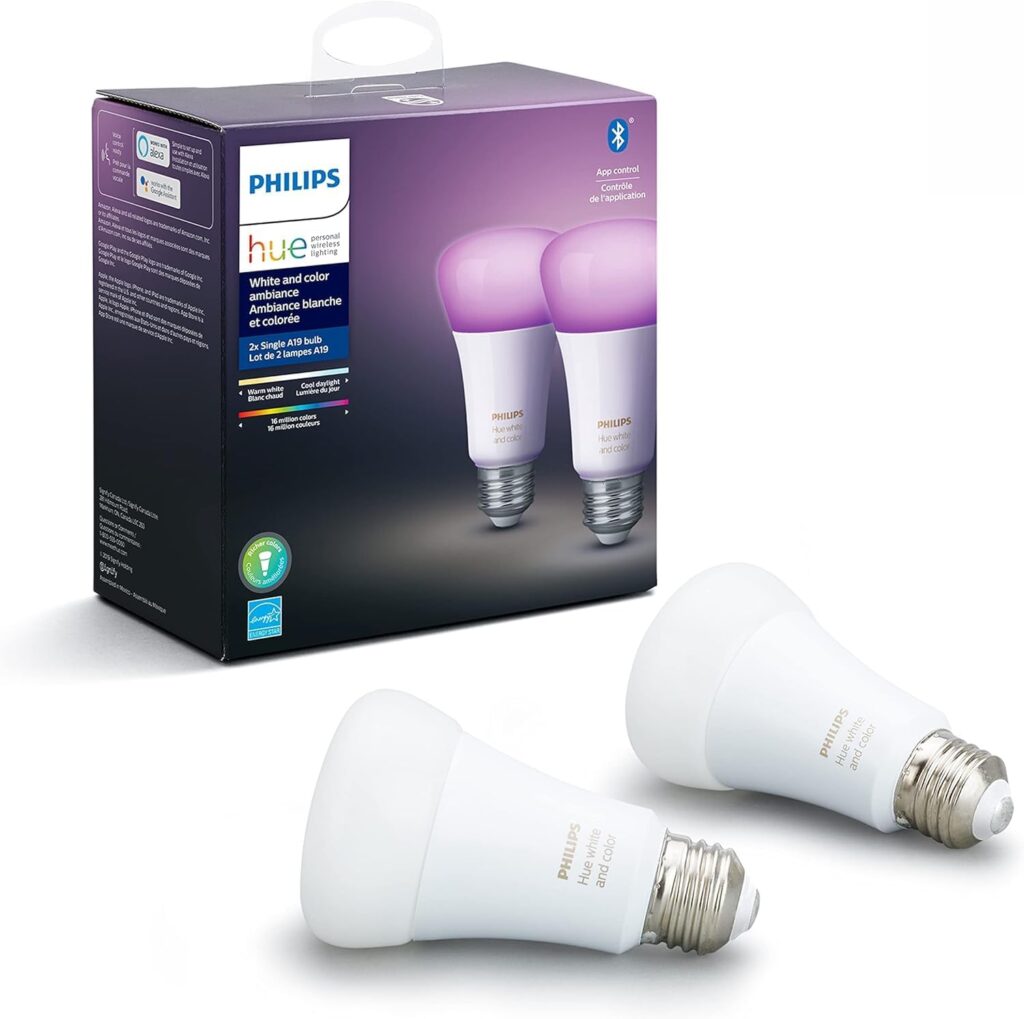
Eco-Friendly Cooking Practices
In addition to investing in smart devices, here are a few tips to adopt eco-friendly cooking practices and further enhance your kitchen’s sustainability.
- Batch Cooking: Prepare meals in bulk to save time and energy. This method not only reduces cooking time but also minimizes cleanup.
- Use Lids on Pots: Using lids helps retain heat and cook food faster, which conserves energy.
- Plan Meals Wisely: Reduce food waste by planning meals around ingredients you already have. This not only saves money but also reduces the need for extra grocery trips.
- Utilize Leftovers Creatively: Transform leftovers into new meals rather than letting them go to waste. This practice not only saves food but also reduces the need for additional cooking.
- Choose Smaller Appliances When Possible: If you’re cooking for one, consider using smaller appliances like toaster ovens or air fryers instead of heating up a large oven.
Water Conservation in the Kitchen
While focusing on energy efficiency is essential, don’t overlook water conservation as part of creating a sustainable kitchen environment. Here are some tips to save water while cooking:
- Use a Dishwasher Efficiently: If you have a dishwasher, use it instead of washing dishes by hand—it typically uses less water. Make sure to run it only when it’s full to maximize efficiency.
- Install Low-Flow Faucets: Consider replacing standard faucets with low-flow models that reduce water flow without sacrificing pressure.
- Collect Water for Plants: When waiting for hot water from the tap, collect the cold water that runs first and use it to water plants or gardens.
The Role of Smart Home Integration
Integrating all these smart devices into a cohesive system can further enhance their effectiveness in reducing energy consumption. Many smart home systems allow you to connect various devices so they work together seamlessly.
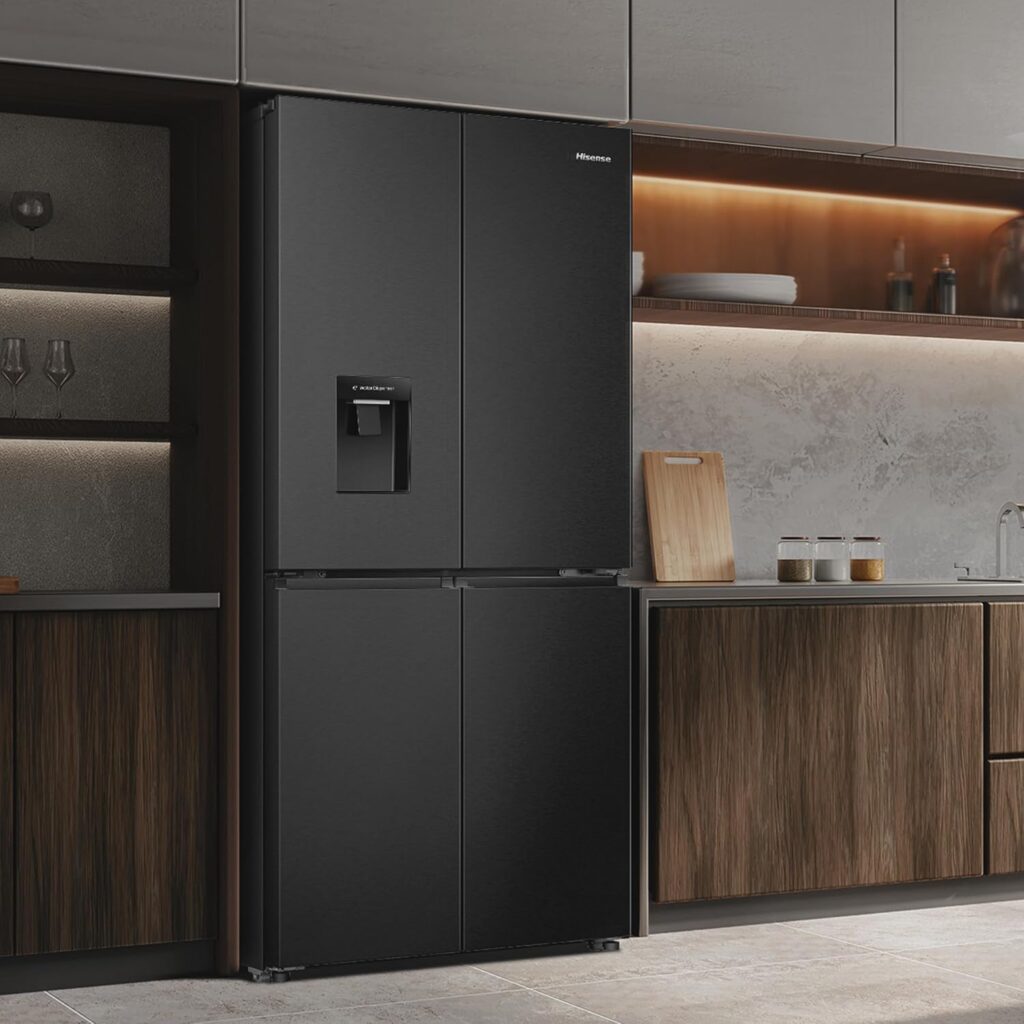
Benefits of Integration:
- Centralized Control: Use a single app or voice assistant to manage all your devices.
- Automated Routines: Set up routines that automate tasks based on your schedule (e.g., turning off lights when you leave home).
- Energy Reports: Some systems provide insights into your overall energy usage, helping you identify areas for improvement.
A Sustainable Future Awaits
The combination of eco-friendly smart devices and mindful cooking practices can lead to significant reductions in energy consumption, ultimately saving you money on utility bills. By making informed choices about the devices you use and how you operate them, you can enjoy all the conveniences of modern living while reducing your environmental impact—one meal at a time.
The journey towards an eco-friendly kitchen doesn’t have to be overwhelming; it starts with small steps that lead to significant changes over time. Whether you’re upgrading existing appliances or incorporating new technologies into your routine, every effort counts toward creating a more sustainable lifestyle.
